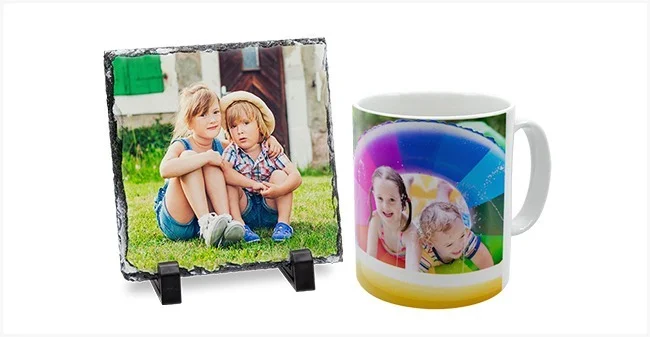Are you looking for a delicious and healthy way to kick offspring? Look no further than sulphite-free natural wine online! Sulphites are a common additive in many wines but can cause adverse reactions for some people. Fortunately, there are now lots of amazing sulphite-free wines available, so you can still enjoy a glass of natural wine brands without the worry. In this blog post, we’ll go through some of the best sulphite-free wines to enjoy this spring. So, grab a glass, sit back, and enjoy!
What are Sulphites?
Sulphites are a group of sulphur-based compounds used as preservatives in a range of food and beverage products. They are also naturally occurring in some foods, including wine. In wine, sulphites act as an antioxidant and antimicrobial agent, protecting the wine from spoilage. The use of sulphites is regulated by the US Food and Drug Administration, and all wines must list “contains sulphites” on their label if the level of sulphites exceeds 10 parts per million (ppm). While some people are sensitive to sulphites, most people can consume wines containing low levels of sulphites without any ill effects.
Why Are Some People Sensitive To Sulphites?
Sulphites are naturally occurring compounds in food and beverages, but they can also be added as a preservative. People with allergies or asthma may be sensitive to sulphites, experiencing reactions such as difficulty breathing, headaches, hives, and facial swelling. For those with existing conditions, it’s important to avoid food and beverages that contain sulphites. It’s even more important for those who have asthma or a history of anaphylactic shock.
The severity of the reaction varies from person to person and can range from mild symptoms like hives and nausea, to more serious reactions like difficulty breathing and anaphylactic shock. The exact cause of this sensitivity is unknown, but it is thought to be linked to the level of exposure and the body’s inability to detoxify the sulphites.
Sulphite-free products are becoming increasingly popular as people become more aware of the potential health risks associated with consuming sulphite-containing foods and drinks. However, it’s still important to check the ingredients list on any packaged product, including wine, to ensure that it is free from sulphites.
Are all Wines High in Sulphites?
No, not all wines are high in sulphites. Sulphites are preservatives commonly added to wine during the winemaking process to help preserve the quality of the product and prevent spoilage. Some winemakers, however, choose to use alternative methods of preservation or to avoid adding sulphites altogether. As a result, some wines are naturally low in sulphites or completely free of sulphites.
When looking at the label of a bottle of wine, it will usually state whether it contains sulphites. Most wines contain some number of sulphites, but the exact amount can vary greatly depending on the winemaker. Wines with a lower alcohol content will have less sulphites than those with higher alcohol content. Furthermore, natural wines are usually much lower in sulphites than wines made with conventional methods.
For people who are sensitive to sulphites or looking for an option that is free from these preservatives, there are several options available. Many producers offer naturally low-sulphite wines, and some winemakers even offer completely sulphite-free varieties. These wines can be a great option for those seeking a healthier alternative to traditional wines.
How Can You Tell If A Wine Is Sulphite-Free?

When looking for a sulphite-free wine, it is important to be aware of labels that indicate the presence or absence of sulphites. Some labels will explicitly state that the wine is “sulphite-free”, “no added sulphites”, or “made without sulphites”. Other labels may have more subtle indicators, such as “low sulphur” or “no artificial preservatives”. It is important to pay close attention to these labels and take note of any chemical names, such as sulphites, thiols, or SO2.
The European Union has created regulations that require all wines to contain less than 10mg/L of total sulphites. This level of sulphites is considered “low” and can be found in some organic and biodynamic wines. Many natural and organic wines will also label themselves as “sulphite-free” or “no added sulphites”, although this may not always be the case.
Another way to determine if a wine is sulphite-free is by reading reviews online or asking a knowledgeable wine merchant. An experienced merchant should be able to help you find a suitable sulphite-free option. You can also contact the winery directly and ask them about their sulphite levels.
Finally, you can also taste the wine for yourself and see if it has an overly sweet taste or a strong sulphur smell. These are both indications that there may be high levels of sulphites present in the wine.
Overall, there are many ways to tell if a wine is sulphite-free. It is important to take the time to read labels carefully and do your research before purchasing a bottle. With a little bit of effort, you can find the perfect sulphite-free wine to enjoy this spring!
What Is The Best Sulphite-Free Wines To Try?
If you are looking for a delicious sulphite-free wine to enjoy this spring, there are plenty of options to choose from. Red wines, white wines, and even sparkling wines can be found without added sulphites. For those who have sensitivities to sulphites or those looking to minimize their intake, these are some of the best sulphite-free wines to try.
When it comes to red wines, many experts suggest opting for Pinot Noir or Gamay. These varietals tend to be naturally lower in sulphites and have softer tannins, making them more accessible to a wider range of palates. Other excellent red wine options include Shiraz, Merlot, and Tempranillo.
White wines like Sauvignon Blanc, Chardonnay, Pinot Gris, Riesling, and Gewurztraminer are all good choices for sulphite-free options. Many of these varietals offer crisp and refreshing flavours that make them perfect for springtime sipping.
Finally, if you’re looking for a bubbly option, sparkling wines like Cava or Prosecco are great choices. Look for bottles that are labelled “organic” or “sulphite-free” for an added assurance that no additional sulphites have been added during production.











